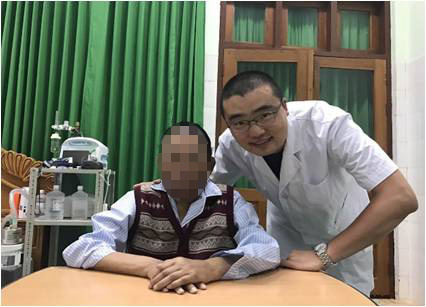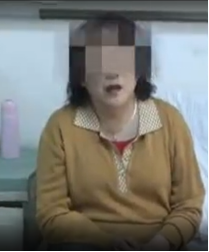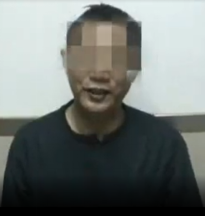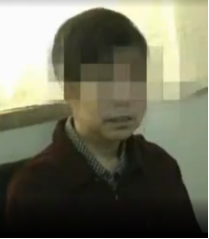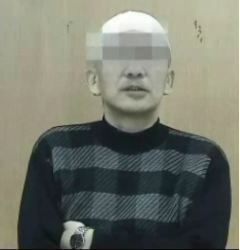
Mr. Zhu, a 47 - year - old man from China, has been grappling with a life-altering condition: motor neuron disease, specifically progressive bulbar palsy. His journey into the throes of this illness began in January 2004, in the most insidious way. Without any apparent cause, his speech started to become slurred, as if his words were being muddled by an invisible force. Each attempt to communicate became a struggle, with his thoughts trapped behind a veil of unclear enunciation.
Simultaneously, his voice grew hoarse, a rasping whisper replacing his once-normal vocal tone. These symptoms, initially subtle, gradually worsened over time. It wasn't until October 2005, after months of medical consultations, tests, and a tortuous wait for answers, that he finally received the definitive diagnosis of MND (PBP). This diagnosis not only brought clarity to his mysterious symptoms but also marked the start of a challenging battle against a disease that would test his physical and emotional resilience.
Pre-Treatment Condition (Before the First Course of Treatment)
• Speech Impairment
Mr. Zhu's speech was severely affected. His words came out slurred, as if his tongue and vocal cords were struggling to form the correct sounds. The speed at which he spoke was agonizingly slow, each syllable taking a deliberate effort. It was as if his vocal apparatus was rapidly losing its strength, making communication a herculean task for him.
• Emotional Lability
Forced laughter or crying episodes were a prominent and distressing part of his condition. These outbursts were particularly evident when he was reading. No matter how hard he tried to maintain composure, sudden fits of laughter or tears would overtake him without warning. He had no control over these emotional surges, which not only embarrassed him in social situations but also made simple activities like reading a deeply frustrating experience..
• Chewing Difficulties
His chewing power had diminished significantly. His teeth simply lacked the strength to bite into harder foods. This not only affected his diet but also his enjoyment of food, a simple pleasure that many take for granted.
• Muscle Weakness and Atrophy
The muscle strength in his upper limbs was notably weak. His hands, in particular, showed obvious signs of muscle atrophy, especially in the escaping muscles. This made it difficult for him to perform even the most basic hand-related tasks, such as grasping objects firmly.
First Course of Stem Cell Treatment (Dec 2008)
Treatment Methods: lumbar puncture
Outcomes After the First Course of Treatment
• Dramatic Speech Improvement
Since the treatment, Mr. Zhu's speech has undergone a remarkable transformation. He can now speak out loudly and with strength, a stark contrast to his previous weak and barely audible voice. The most evident change is the extended period he can engage in conversation. Before, a short chat would exhaust him, but now he can have longer, more meaningful discussions. His speech is clearer, and the slurring that once muddled his words has significantly subsided.
• Alleviated Emotional Lability
The distressing episodes of forced laughter or crying have improved significantly. He no longer experiences sudden and uncontrollable emotional outbursts, especially during activities like reading. He can now enjoy simple pleasures like reading a book or watching a movie without the fear of being interrupted by these involuntary emotional reactions.
• Enhanced Chewing Power
His chewing power has seen a remarkable boost. His teeth, once too weak to handle harder foods, can now bite into items like flour biscuits with relative ease. This improvement in chewing ability has expanded his dietary options, allowing him to enjoy a wider variety of foods. Eating has become a more enjoyable and less restrictive experience, contributing to his overall quality of life.
• Improved Limb Function
In terms of limb function, Mr. Zhu's upper limbs have become much more mobile. He can lift them up more easily, which was a struggle before the treatment.
Second Course of Stem Cell Treatment (April 2018)
Progress Summary & Future Outlook
After discharge, Mr. Zhu's medical condition continues to improve steadily. Each day brings new signs of progress, whether it's a further enhancement in his speech clarity, an increase in his physical strength, or a reduction in the remaining symptoms of his motor neuron disease. This continuous improvement gives him and his family hope for a brighter future.
